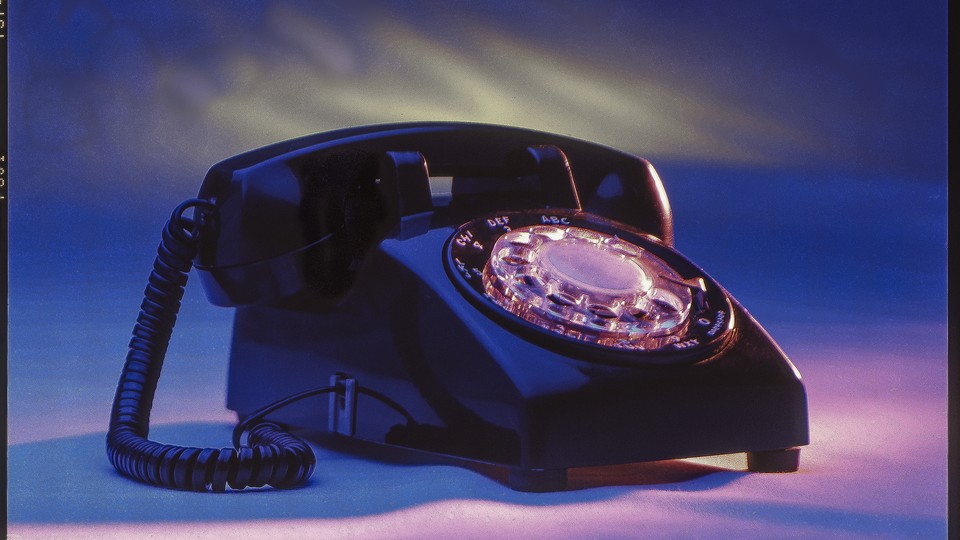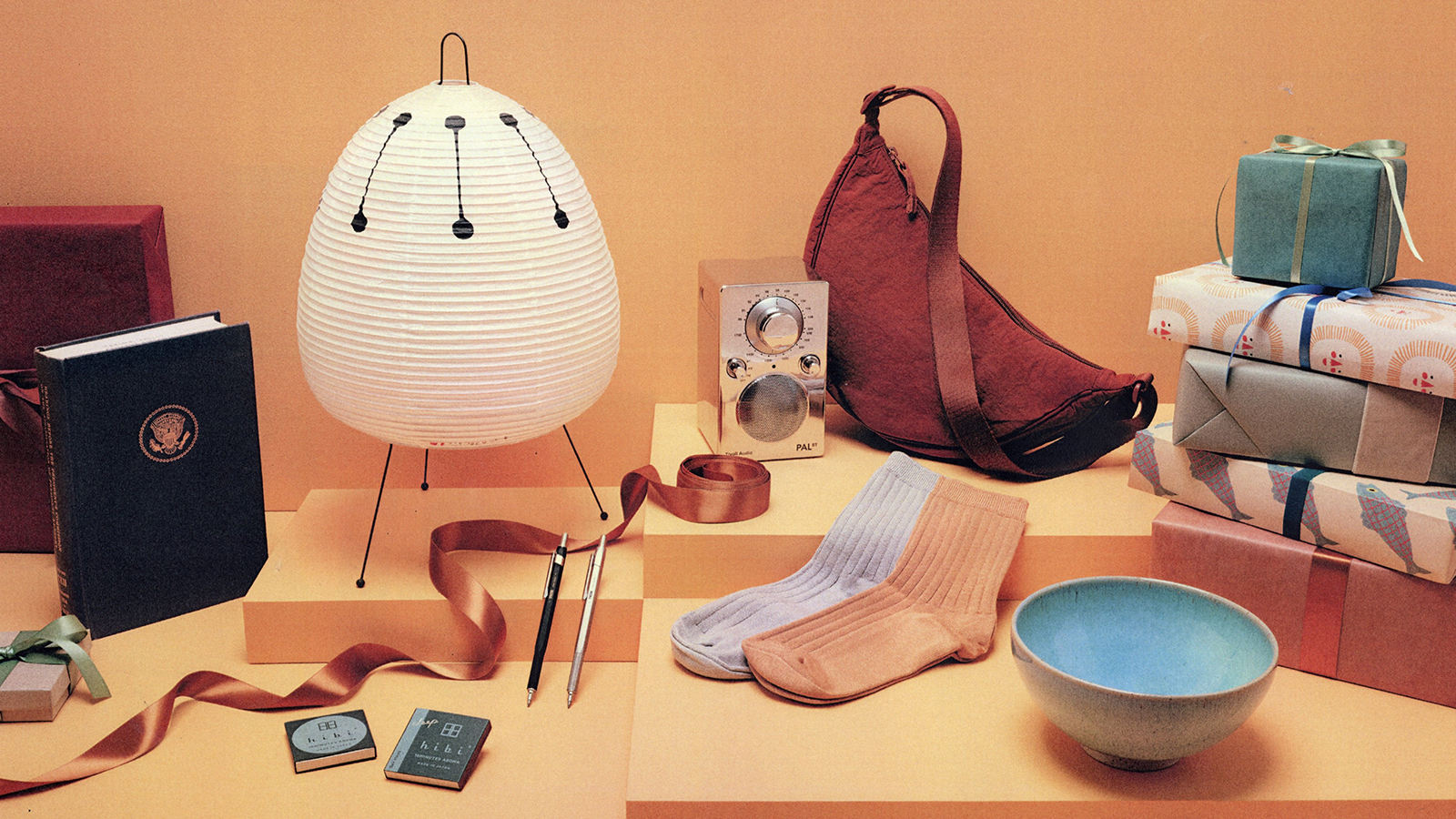The Trends Atlantic Writers Love and Hate
7 min read
This is an edition of The Atlantic Daily, a newsletter that guides you through the biggest stories of the day, helps you discover new ideas, and recommends the best in culture. Sign up for it here.
Thanksgiving can be a time to reconnect with the things we watched, wore, and listened to in the past (especially for those staying in their childhood bedrooms this weekend). Today we asked six Atlantic writers and editors to answer the question: What’s a trend you wish would come back, and one you wish would go away?
Come back: The most glamorous design for a hardcover book is when the front cover has text only—in a very dramatic typeface—and the back cover has a giant photo of the author. This trend had a good 20-year run at least. I’m talking about a gorgeous edition of Nabokov’s Speak, Memory (1966), the first edition of John le Carré’s Tinker Tailor Soldier Spy (1974), the first edition of Don DeLillo’s White Noise (1985). Instantly recognizable E. B. White (1977) and Joan Didion (1979) essay collections. Patty Hearst’s memoir (1982)! Today’s tiny photos and floral designs (or whatever) are too demure.
Go away: You order a glass of wine, in part, so that you can hold a wine glass. And that’s why you’re happy to pay $15 for a glass of wine poured from a $15 bottle—because you’re sitting in a restaurant and holding a wine glass and feeling elegant. Tragically, hip restaurants and trendy wine bars now serve wine in juice glasses (for children) or other stubby, unelegant vessels inspired by “tavern” glassware. And for what reason? Because it seems less pretentious? I can be unpretentious at home!
— Kaitlyn Tiffany, staff writer
Come back: My parents disconnected their landline, but the number is seared in my mind alongside the other home numbers of my childhood friends. I recently learned that my internet provider offers a free landline, and my apartment has a number of its own. All I have to do is plug a phone into the jack. It’s an idyllic thought: coming home, putting my cellphone—and all its distractions—away, but not being disconnected. I can still chat aimlessly with my sister while doing chores, or catch up with a long-distance friend. I’m all for bringing back the landline as a way to create a just-large-enough opening for the outside world to reach me.
Go away: The quantification of the body through fitness trackers can be helpful when they show you your activity levels or other health markers, but I’m ready to let go of sleep scores. Seeing a negative score can make you feel more tired (no matter how you slept), or lead to orthosomnia, the obsession with getting “perfect” sleep. I’m also wary of what the philosopher C. Thi Nguyen calls “value capture,” when we adopt simplified metrics as our goals, often because technology provides them to us. I used to struggle with my sleep, and I addressed it through making more time for rest, managing anxiety, and, paradoxically, paying less attention to whether I was getting an A in sleeping. The last thing I want to see after a fitful night is a number telling me how badly I’ve slept. I promise, I already know.
— Shayla Love, staff writer
Come back: It happened to me: I wore transition lenses. It was 2009, and I was living in Washington, D.C., the global capital of un-fashion. I somehow let the optometrist convince me that I could save money if I bought eyeglasses that doubled as sunglasses. As a result, for five minutes after going indoors or out, I saw the world through a fuzzy gray veil. It was an off-putting choice even by D.C. standards. Friends questioned my judgment; second dates were rare. But in retrospect, it expressed something real: both pragmatism and a proud disregard for good taste.
It’s time for us to re-embrace fashion with a practical purpose. Cargo shorts, thank goodness, are back. What can match the joy of striding down the sidewalk, bag-free yet with any item—phone, wallet, tissues, Advil, sunscreen, water bottle, loose fruit, paperback novels—within easy reach? (Plus, an article of clothing so visually heinous now connotes rebellion.) The fanny pack went from trend to joke to respectable garment. And walking is nice, but have you tried gliding gracefully across the cityscape? This is why God invented Heelys.
Go away: Then again, utilitarian fashion has led to some dark places. The first time I saw an Apple Watch, I was skeptical—who’d want to be harassed by text messages 24/7? I was wrong about what my fellow humans wanted, but I stand by the principle. Digital garments are the opposite of their analog analogues: They invade our psychic space in the name of convenience. They provide the illusion of control while in fact controlling the user. There’s a slippery slope from Apple Watches and Meta glasses to AirPods that pipe conversation topics into your ears and beanies that scan your brain waves. Too much pragmatism turns us all into tools.
— Christopher Beam, writing fellow
Come back: I want what was known as the “Global Village Coffeehouse” aesthetic of the late 1980s to early 2000s back. The style was in part a reaction to the ascent of the early tech boom and invoked an ambiguous bohemian warmth. Global Village Coffeehouse recalled a global culture that made no sense and referred to no specific place. It was perfect because it was flawed. Its designs—commonly found in second-wave coffee shops—were loopy and bordered on messy, but they had an internal logic: a sort of contained chaos unlike modern Scandinavian minimalism and mid-century modern. Global Village Coffeehouse interiors were inclusive and not intimidating, and they did not photograph particularly well. The point was to not have an experience that could be broadcast later via an image on an app. It was to have the experience and walk away feeling good.
Go away: LinkedIn posting is eternally baffling, and it needs to be stopped. In the way that TikTok turned humans into marionettes as it puppeteers them into doing viral dances ad infinitum, LinkedIn has turned people I am fond of into something utterly unrecognizable: people who post about their passion for “finding unique solutions to hurdles in developing brand strategy.” I suspect that the LinkedIn posters I know personally are not actually passionate about these things, because they never come up in real-life conversation. This stuff is not good for the soul. It’s not good for my soul to see people I know turn into this, and it’s not good for your soul to be forced to publicly say that you love things you actually do not.
— Ali Breland, staff writer
Come back: Albums, especially those released by the legendary jazz company Blue Note Records, used to feature essays printed on the back of the sleeve. Usually written by music critics or knowledgeable scenesters, the essays could be explanatory, evocative, and at times esoteric; the dispatch accompanying Wayne Shorter’s 1966 release Speak No Evil, for instance, links the tenor saxophonist to Edgar Allen Poe within two sentences. These notes were informative introductions to the tunes, but they also contextualized the musicians’ stylistic influences and artistic development. At a time when recordings have been atomized into algorithmically selected tracks and stan culture encourages the artists’ enshrinement as purveyors of perfection, it is valuable to be reminded that music is a craft produced by fallible, striving souls, in a room with others.
Go away: Until recently, the sky was one of the few precious parts of our world where the internet couldn’t reach us. Now, at the click of some buttons (albeit for a ransom), a dark plane becomes a steampunk arcade of glowing screens.
Bah! Once, humans accomplishing sustained flight was so magical that the appearance of the first hot-air balloons started “balloonomania” across Europe, as well it should have. Now we’re so desensitized to our bodies vaulting between cities that we need TikTok, Netflix, and email to keep our attention aloft. But without Wi-Fi we could chat with strangers, read a good magazine or a bad book, or just stare out the window and enjoy a good old-fashioned Ponder. Let’s go back to a time when nothing on our phones or laptops could possibly feel as magnificent as simply being in the air.
— Evan McMurry, senior editor overseeing audience
And staff writer Jennifer Senior kept her replies concise:
Come back: Big hair.
Go away: The internet.
Here are three stories from The Atlantic:
- How the Ivy League broke America
- A guide for the politically homeless
- A ridiculous, perfect way to make friends
The Atlantic Gift Guide

The Atlantic has chosen 65 gifts for bringing more merriment, adventure, and wonder to the ones you love. Read our gift guide.
Culture Break

Watch. In 2020, our critic compiled a list of 25 feel-good movies you’ll want to watch again and again.
Read. “Ours was a sky real estate so dark, we could track / the Milky Way cartwheeling over our house / could hold the plasmic whiskers of its twilit clouds / accountable for our paradoxes”
Spend time with a poem by Miciah Pendarvis.
Explore all of our newsletters.
When you buy a book using a link in this newsletter, we receive a commission. Thank you for supporting The Atlantic.



